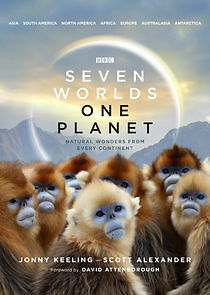|
Africa - home to the greatest wildlife gatherings on earth. But even in this land of plenty, wildlife faces huge challenges. At its heart is a vast tropical rainforest full of life. Here young chimpanzees learn how to use tools to make the most of the jungles riches. With knowledge passed down from generation to generation, they can access the best forest foods.Rivalling the jungle for it sheer abundance of life is Africa's Great Rift Valley. It formed 30 million years ago when a mass of molten rock forced the land upwards, eventually tearing the planet's crust apart. As the valley deepened, rivers flooded the valley floor creating stunning lakes. These are the richest freshwater habitats on the planet.Africa's rich Serengeti grasslands are home to the greatest herds of antelopes, wildebeest and zebras. Close behind them are their predators. To increase their chances of a successful kill a group of five cheetahs team up to form one of the largest cheetah coalitions ever seen. But numbers aren't always enough.Covering one third of the continent, Africa's deserts are tough environments for wildlife. In the Namib, the oldest desert on Earth, brown hyenas make epic journeys in search of food for their families and seek shelter in long-abandoned ghost towns. Meanwhile, in the Kalahari the bizarre-looking aardvark digs deep to find a meal.For millennia, Africa's unique wildlife has managed to thrive, even in its most hostile corners, but today its greatest threat comes from human activity. In the last century, millions of elephants have been killed by hunters and poachers, and the desire for northern white rhino horn has brought the sub-species to the brink of extinction.But with help, wildlife populations can recover. In the Virunga mountains, dedicated conservation efforts have meant mountain gorilla numbers have increased above 1000 for the first time since records began. The decisions we make now will decide the future of animals, humanity and all life on earth.
|

Ended
|



grasshopper rex : When a clean copy is available.